Search
Remove Ads
Advertisement
Summary 
Loading AI-generated summary based on World History Encyclopedia articles ...
Search Results

Definition
Edward Montagu, Earl of Manchester
Edward Montagu, 2nd Earl of Manchester (l. 1602-1671), was a Parliamentarian commander during the English Civil Wars (1642-1651). He led the Eastern Association army before the indecisive Second Battle of Newbury in 1644 led to recriminations...

Image
Edward Montagu, Earl of Manchester
A portrait of Edward Montagu, Earl of Manchester (1602-1671). Manchester commanded one of the main armies of the Parliamentarians during the English Civil Wars (1642-51) until he was discredited for his performance in the indecisive Second...

Article
Second Battle of Newbury
The Second Battle of Newbury on 27 October 1644 was a major battle during the English Civil Wars (1642-1651). There was no clear winner despite the Parliamentarians having a numerical advantage of 2:1. The seeming lack of coordination between...
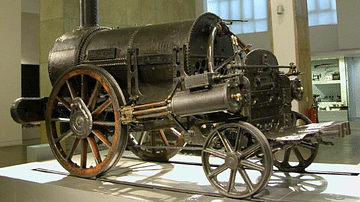
Definition
Stephenson's Rocket
The Rocket was a pioneering steam-powered locomotive invented in 1829 by the British engineer Robert Stephenson (1803-1859). For a cash prize, extensive competition trials were held to find the best locomotive in the Rainhill Trials. Rocket...

Article
The Railways in the British Industrial Revolution
The railways were perhaps the most visible element of the Industrial Revolution for many. Trains powered by steam engines carried goods and people faster than ever before and reached new destinations, connecting businesses to new markets...
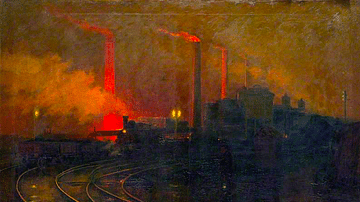
Definition
British Industrial Revolution
The British Industrial Revolution (1760-1840) brought innovative mechanisation and deep social change. The process saw the invention of steam-powered machines, which were used in factories in ever-growing urban centres. Agriculture remained...
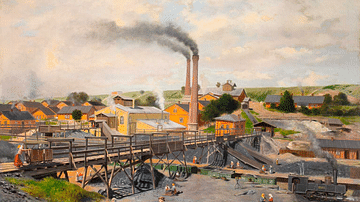
Article
The Impact of the British Industrial Revolution
The consequences of the British Industrial Revolution (1760-1840) were many, varied, and long-lasting. Working life in rural and urban settings was changed forever by the inventions of new machines, the spread of factories, and the decline...
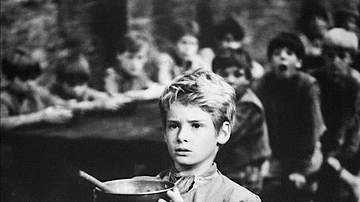
Article
Social Change in the British Industrial Revolution
The British Industrial Revolution (1760-1840) witnessed a great number of technical innovations, such as steam-powered machines, which resulted in new working practices, which in turn brought many social changes. More women and children worked...
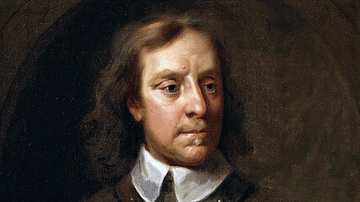
Definition
Oliver Cromwell
Oliver Cromwell (1599-1658) was an accomplished cavalry commander, then head of Parliament's New Model Army, and finally Lord Protector of England, Scotland, and Ireland. The latter title was awarded to Cromwell for life after the bloody...
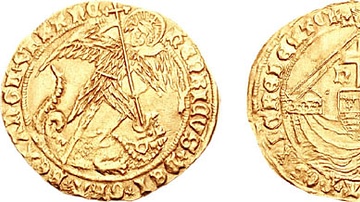
Definition
King's Evil
The king’s evil (from the Latin morbus regius meaning royal sickness), more commonly known as scrofula or medically tuberculous lymphadenitis, was a skin disease believed to be cured by the touch of the monarch as part of their inherited...